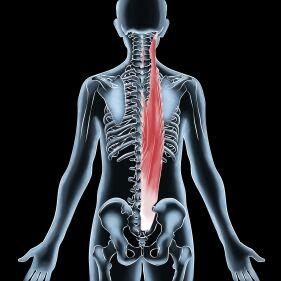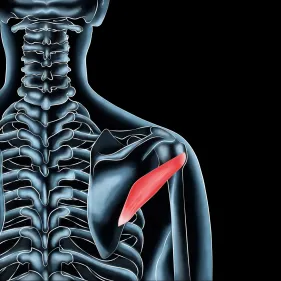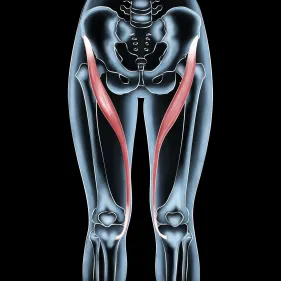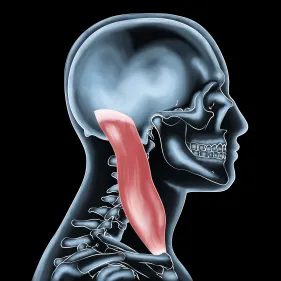Muscle pain while sleeping is a frustrating reality for many active individuals in Edmonton and Sherwood Park. Research shows that up to 30% of adults report waking with sore or stiff muscles at least once a week, and for athletes or fitness-minded people, this number can be even higher. Whether you’re training for a marathon, spending long hours at the gym, or recovering from weekend sports, waking up with aching muscles can affect both your performance and your rest.
This article explores the common causes of nighttime discomfort, including tense muscles while sleeping, stress, poor posture, and overuse injuries. It also highlights real-world solutions—ranging from better sleep habits to professional therapies—so you can wake up refreshed and ready to move.
What Causes Muscle Pain While Sleeping?
Muscle pain at night doesn’t just appear without reason. It’s usually the result of how your body responds to stress, activity, and recovery.
Poor Sleep Posture
Sleeping in awkward or unsupported positions puts pressure on your neck, shoulders, and lower back. Over time, this strain can create a pulled muscle while sleeping, leaving you stiff and sore when morning comes. A supportive mattress and pillow that maintain spinal alignment are crucial for preventing this.
Overuse and Muscle Fatigue
Athletes and active individuals in Edmonton often push their limits. Long training runs, heavy lifts, or intense practices can create micro-tears in muscle fibers. While this is part of healthy adaptation, it also means sore muscles at night if the body doesn’t get enough recovery time.
Stress and Muscle Tension
Stress often settles in the body as muscle tightness. Anxiety or mental strain can cause tense muscles while sleeping, particularly in the shoulders, neck, and jaw. This tension leads to disrupted sleep and lingering pain.
Medical Conditions
Certain conditions such as fibromyalgia, arthritis, or polymyalgia rheumatica may cause ongoing muscle pain at night. In these cases, pain often persists despite good sleep habits and requires professional evaluation.

Real-Life Example: The Runner with Tight Calves
A Sherwood Park runner training for the Edmonton Marathon noticed waking every night with calf cramps and tightness. After evaluation, it turned out her pre-sleep stretching routine was inconsistent, and she wasn’t hydrating properly. By adding evening calf stretches, magnesium-rich foods, and regular therapeutic massage sessions, she not only reduced nighttime pain but also improved her recovery between runs.
How to Relieve Muscle Pain While Sleeping
If you’re waking up sore or stiff, here are proven tactics you can try.
Adjust Your Sleep Environment
- Choose a supportive mattress that aligns your spine.
- Use a pillow that prevents your neck from tilting too far forward or back.
- Keep your room cool and dark to encourage deeper, restorative sleep.
Improve Your Posture in Bed
- Sleeping on your back with a pillow under your knees reduces strain on the lower back.
- Side sleepers benefit from placing a pillow between the knees to keep hips aligned.
Use Heat or Cold Therapy
Applying heat with a warm shower or heating pad before bed helps muscles relax. Cold packs wrapped in a towel can reduce inflammation after a heavy workout.
Build a Bedtime Recovery Routine
- Light stretching or yoga before bed helps ease tense muscles while sleeping.
- A short meditation or breathing exercise reduces stress-related tightness.
- Limit screens to allow melatonin production and better sleep quality.
Professional Support for Persistent Pain
If pain persists, it may be time to seek professional treatment. Services such as deep tissue massage in Edmonton or shockwave therapy for chronic pain can help restore mobility and reduce nighttime discomfort.
- Deep Tissue Massage can break down adhesions and relieve muscle tension from overuse.
- Shockwave Therapy is especially effective for stubborn injuries that flare up at night.
Pulled Muscle While Sleeping: What You Should Do
Waking up with the sharp pain of a pulled muscle while sleeping can be alarming. While it may feel sudden, it usually happens because of weak support, poor posture, or pre-existing tightness.
First Steps for Relief
- Rest the affected area for 24–48 hours.
- Apply ice for 15 minutes several times a day to reduce inflammation.
- Use compression or gentle support to avoid further strain.
- Once acute pain subsides, gradually introduce heat and gentle stretching.
If you’re unsure whether the pain is a simple strain or something more serious, consult a healthcare provider or book a session with a local therapist.
Long-Term Strategies to Prevent Nighttime Muscle Pain
Preventing muscle pain at night requires consistent habits both during the day and before bedtime.
Prioritize Recovery After Activity
Athletes often focus heavily on training while overlooking recovery. Foam rolling, hydration, and sports massage sessions can drastically reduce tension before bedtime.
Stress Management
Daily mindfulness practices, yoga, or evening walks can reduce stress levels. The less stress your body holds, the less tension will surface as muscle pain while sleeping.
Regular Bodywork
Modalities like manual osteopathy or therapeutic massage can help restore balance, alignment, and mobility. These therapies address the root causes of muscle tension and support long-term comfort.
Nutrition and Hydration
Electrolyte imbalance is a common cause of nighttime cramps. Active individuals should monitor hydration, especially after long workouts or hot summer days in Edmonton. Balanced nutrition with magnesium, calcium, and potassium-rich foods can also reduce cramps.
When to See a Professional
If you notice that your muscle pain while sleeping is:
- Lasting more than two weeks
- Getting worse despite rest
- Paired with swelling, numbness, or weakness
…it’s time to seek professional help. Early intervention can prevent minor strains from becoming long-term limitations.
Restoring Comfort and Restful Nights
Waking up sore doesn’t have to be your norm. With the right adjustments—better posture, stress reduction, professional support, and consistent recovery—you can prevent tense muscles while sleeping and wake up ready to train, compete, or simply enjoy active life in Edmonton and Sherwood Park. For many, services like therapeutic massage in Edmonton or targeted recovery therapies provide the missing piece to uninterrupted, pain-free sleep.





